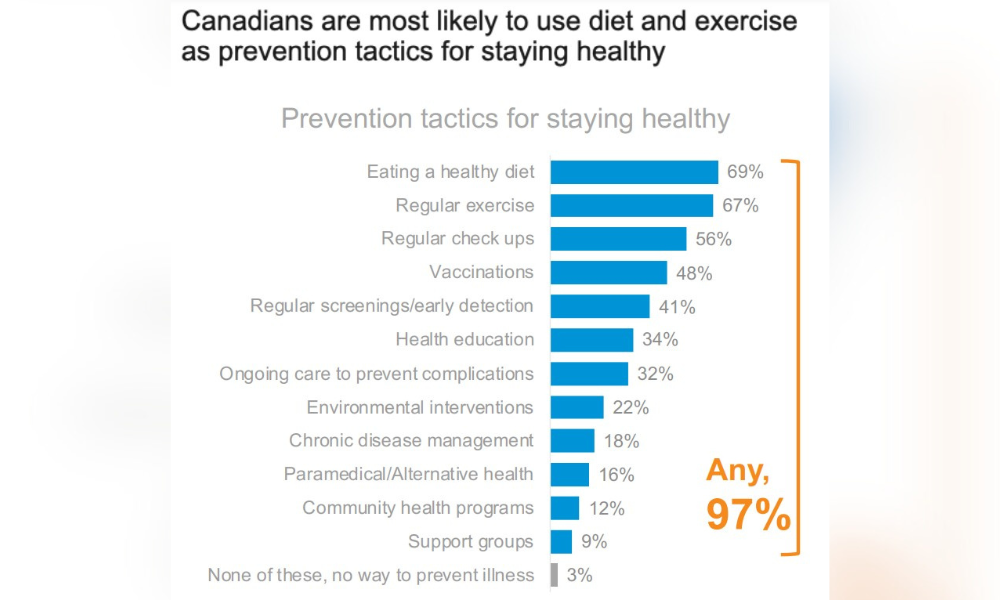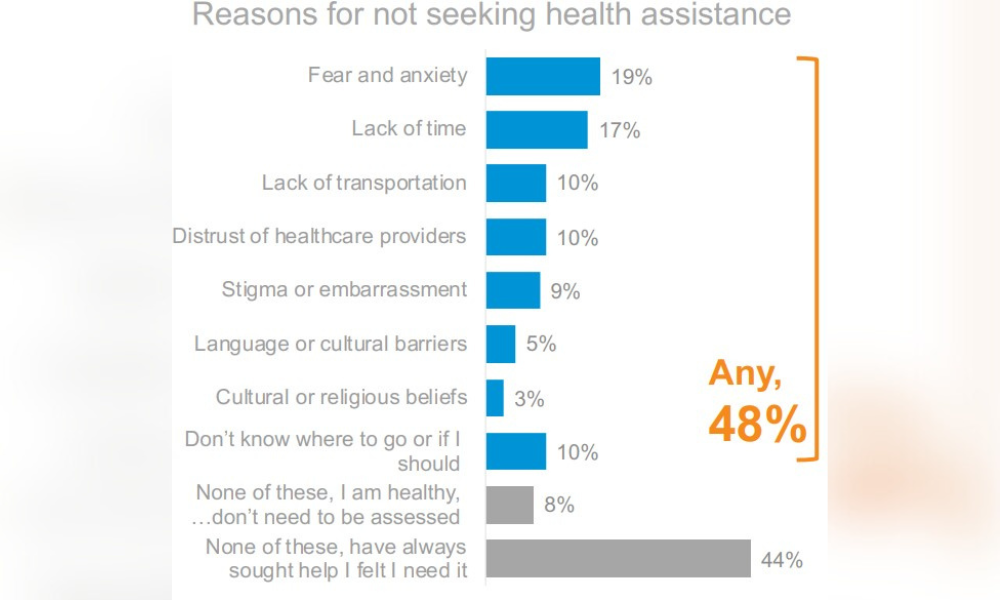
'It is concerning that many Canadians are not seeking essential health services when they need it,' says expert on survey findings

Despite Canadians being proactive when it comes to their health, many are not seeking the preventative care they need from professionals, according to a recent report.
Most Canadians (72%) have tried to improve their health or fitness in the past 12 months by taking their health into their own hands, reports Blue Cross.
The two most important preventive care measures that Canadians take are eating a nutritious and balanced diet (69%) and exercising regularly (67%).
Outside of their own healthy habits, many Canadians also recognize the value in maintaining their health, listing as key prevention tactics:

“Canadians understand the benefits of preventative care, namely for improving their quality of life, and acknowledge that daily habits play a critical role in supporting health,” says Tim Bishop, managing director, Blue Cross of Canada.
Canadians believe that their employer should provide them with coverage for different forms of treatment to address their physical pains, according to a previous Ipsos report.
“However, many Canadians are not taking advantage of the available health services to complement their healthy habits,” says Bishop.
Nearly half (48%) are not seeking care from health professionals when needed, often because of fear and anxiety (19%), lack of time (17%), and lack of transportation (10%), according to Blue Cross’ survey of 2,133 adult Canadians conducted from April to May 2024.
And it’s not just those who can’t afford that did not seek preventive care from health professionals
Nearly half (48%) of Canadians with stable finances did not seek care, along with 36 per cent of Canadians whose financial situation was comfortable.

“It is concerning that many Canadians are not seeking essential health services when they need it,” says Bishop. “These perceived barriers not only impact individual wellbeing but also underscore the urgent need for accessible solutions, like health benefits plans, that empower Canadians to access the care they need and value.”
Comorbidities are fairly common in worker’s compensation cases involving lower back pain, and can have a significant impact on workers’ recovery, according to a previous report from the Workers Compensation Research Institute (WCRI).
The recent study demonstrates that those with health benefits, either through personal health insurance or an employer-provided plan, are more likely to report better health and seek care when needed, according to Blue Cross.
Nearly seven in 10 (69%) individuals with health benefits perceive themselves to be in good health, compared to 55 per cent without. Further, those with benefits are also far more likely (77%) to have pursued health and fitness improvements in the past year.
“Health benefits play a pivotal role by promoting preventive care, managing illnesses, and offering additional protection against unforeseen medical expenses,” says Bishop. “Blue Cross is dedicated to enhancing Canadians’ wellbeing by offering a range of tailored health benefits options that meet individual needs and provide peace of mind.”
Canadian HR professionals view rising health and benefits costs as their greatest people risks, according to a previous report.